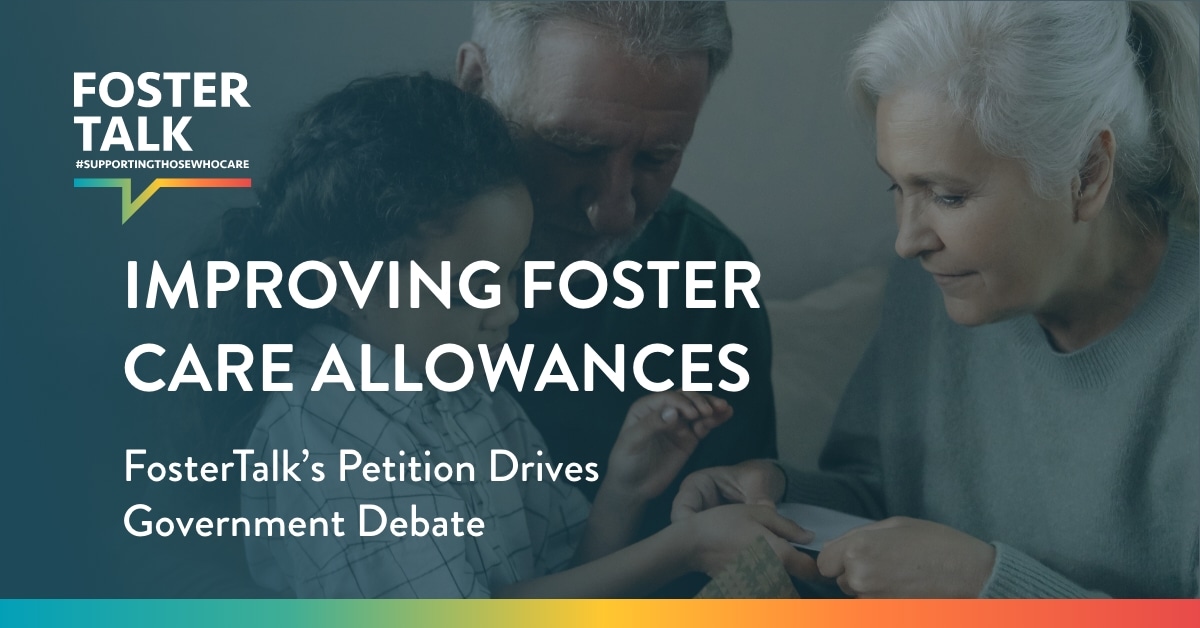This year, the FosterTalk team set out on an ambitious endeavour – a journey to improve foster care allowances and get vital funding into the hands of foster carers around the country.
We’re delighted to announce that, following on from our Cost of Living Report and resulting petition, the government have agreed to hold a January debate in the House of Commons on reviewing and increasing foster case allowances and tax exemptions!
With the cost of living at its highest level since 1982, this debate is welcome news to our team and many thousands of foster carers.
What findings helped spur the government on?
In order to drive change, we needed to prove that foster carers lacked the financial support required to provide adequate care to their foster children.
Our latest findings revealed that 15% of carers have had to borrow money from family or friends, and 30% have had to use their credit card just to support their everyday living.
Financial pressure on our foster carers has never been greater; if we do not act, we are at risk of losing the largest dedicated workforce for children in the U.K.
Statistics unearthed by our survey echo feedback about carers grappling with escalating financial burdens. We found that:
- 92% of foster carers felt financially worse off compared to July 2021
- 18% of foster carers were in debt as a direct result of the cost of living increase.
- 45% of foster carers had to take on new or additional work or employment hours to supplement their household income.
- 31% of foster carers were not currently in debt but there was an increasing risk of them becoming so in the next 3-6 months.
Since this study took place in 2022, it’s likely these figures have changed. However, as the cost of living crisis continues, we predict many foster carers are facing the same challenges.
While the government did increase allowances and make tax changes in response to the survey and campaign run by FosterTalk and TFN, many carers felt these alterations were not enough to make a significant difference to the cost of caring for a child in 2023 and beyond.
Not only do these hardships affect carers, but they also have a significant impact on the wellbeing and mental health of foster children, with hikes in cost reducing their standard of living.
“My young person has complex needs and is unable to access school. We can’t afford to have days out, so we are stuck at home.”
The government’s decision to address this issue marks the first step in a long process of getting what we need to create better conditions for the fostering community to thrive. It’s reason to celebrate, yes, but there’s a long road ahead.
The FosterTalk team will continue to push for change. We understand the importance of this debate; we’re living through this alongside you. We will keep you updated as soon as we know more.
While the results of the debate are uncertain, the momentum generated by this development has given us hope for a future where foster carers receive the support they deserve.
Let’s continue to work together to advocate for a financially stable landscape that aligns with the dedication and compassion of foster carers.
If you have any further questions about the upcoming debate or want to read more about the results of our survey, you can find our Cost of Living Report by clicking the link below.
FosterTalk Cost of Living Report 2022

